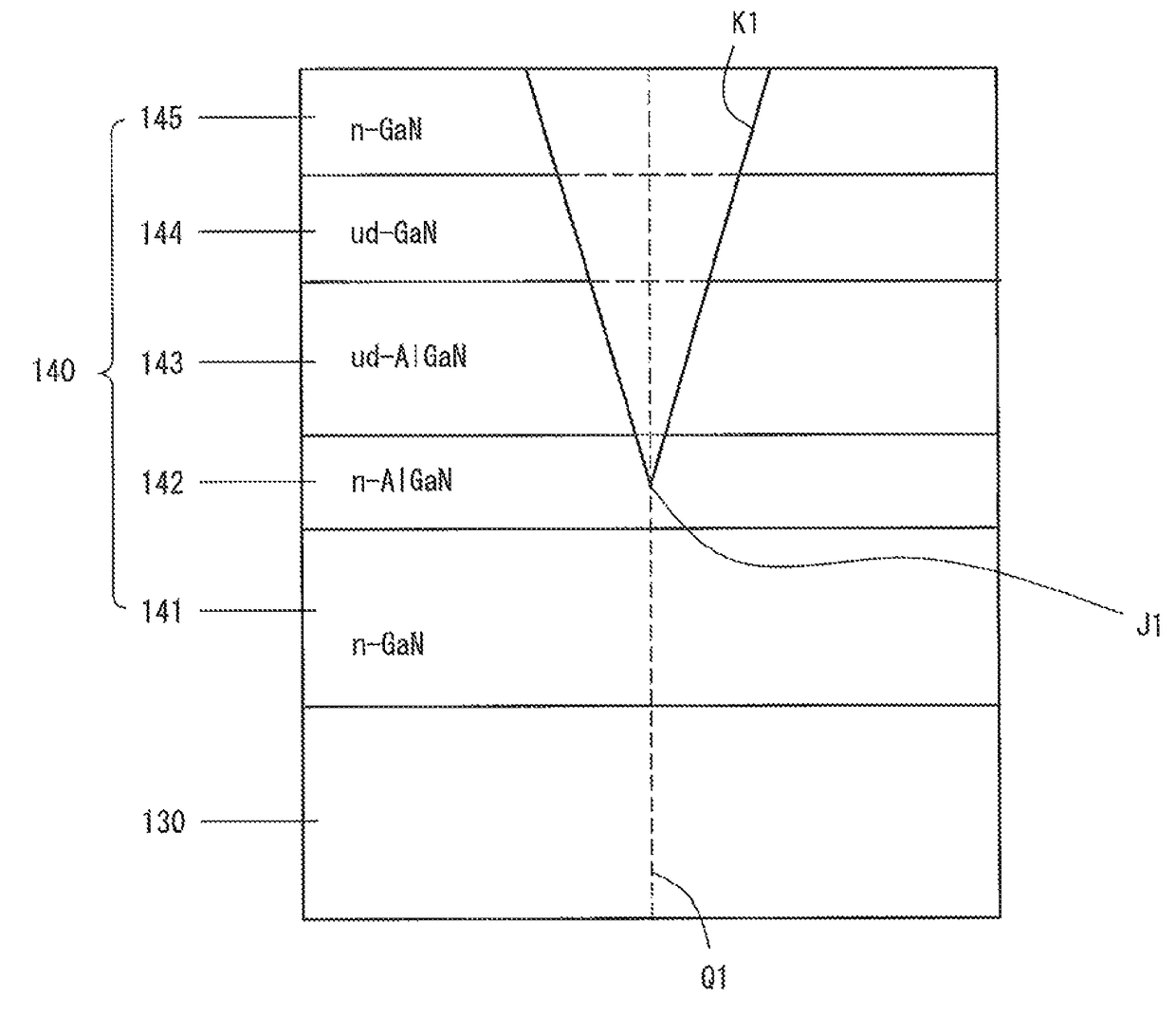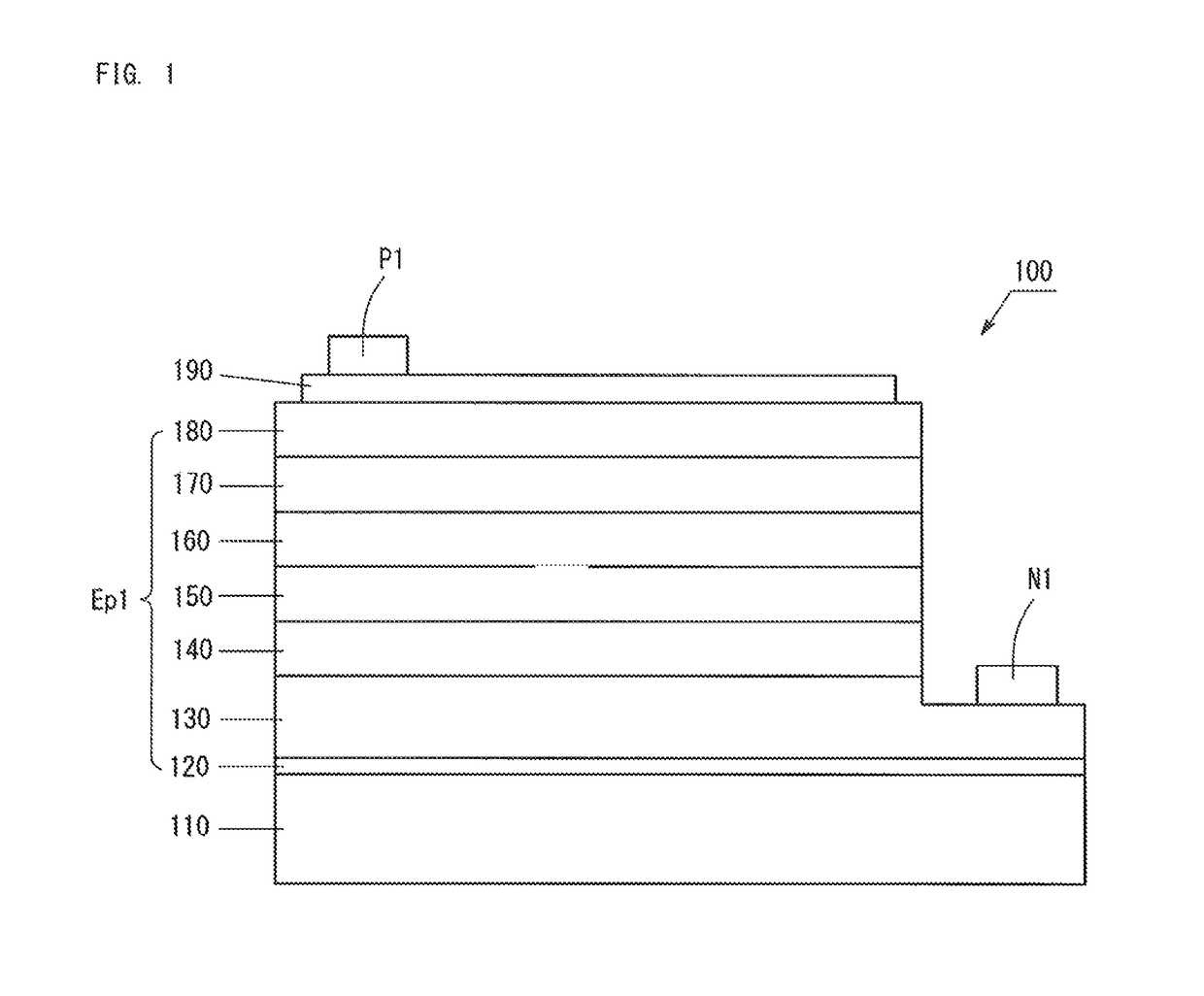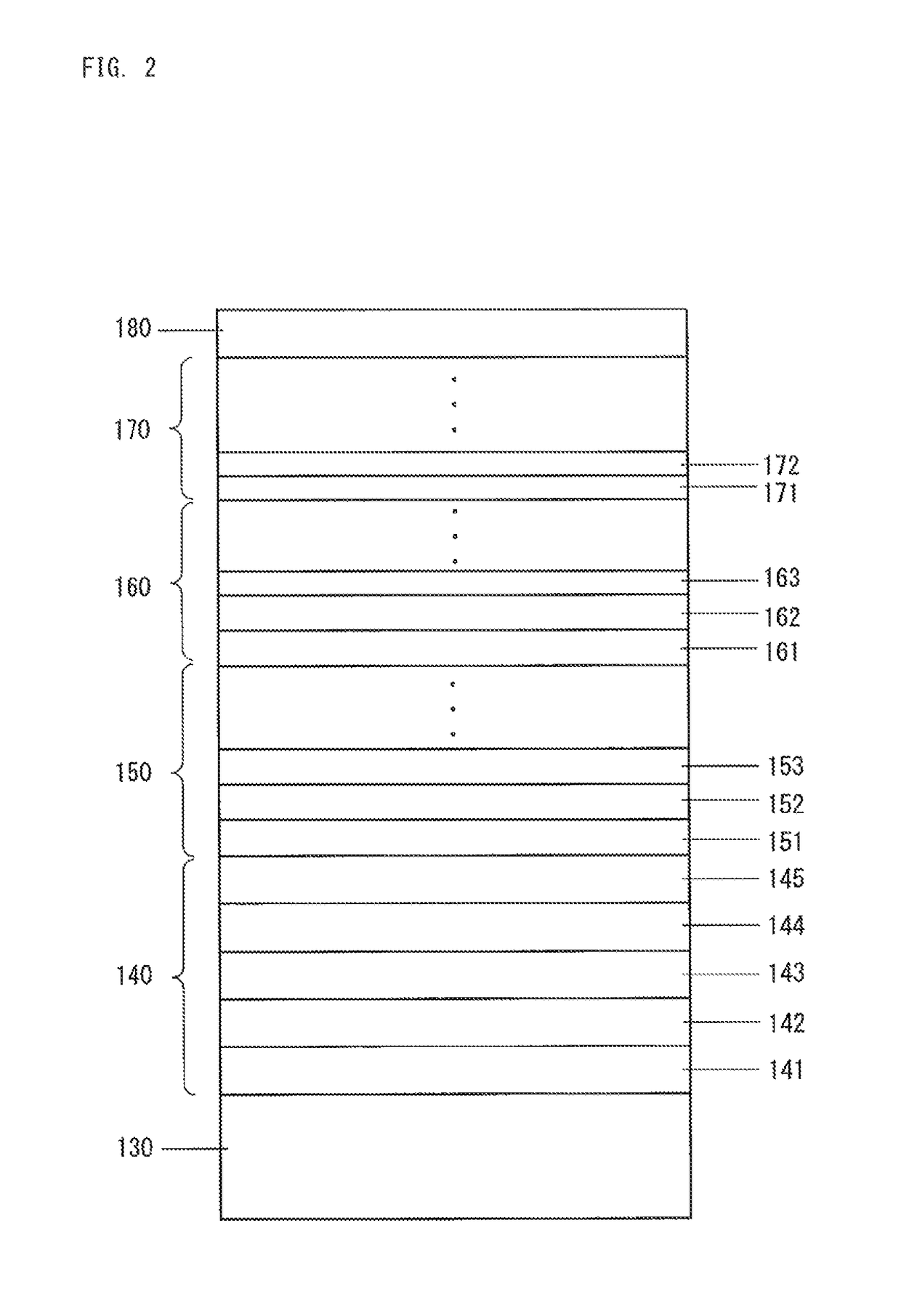Group III nitride semiconductor light-emitting device
a semiconductor and light-emitting device technology, applied in semiconductor devices, basic electric elements, electrical appliances, etc., can solve the problems of difficult capture of carriers by a plurality of pits, difficult to capture carriers, etc., to achieve superior emission efficiency, non-radiative recombination is further suppressed, and the surface flatness of the semiconductor layer is improved.
- Summary
- Abstract
- Description
- Claims
- Application Information
AI Technical Summary
Benefits of technology
Problems solved by technology
Method used
Image
Examples
first embodiment
1. Semiconductor Light-Emitting Device
[0034]FIG. 1 is a sketch showing the structure of a light-emitting device 100 according to an embodiment. FIG. 2 is a sketch showing the layered structure of semiconductor layers in the light-emitting device 100. The light-emitting device 100 is a face-up type semiconductor light-emitting device. The light-emitting device 100 has a plurality of Group III nitride semiconductor layers.
[0035]As shown in FIG. 1, the light-emitting device 100 comprises a substrate 110, a low-temperature buffer layer 120, an n-type contact layer 130, an n-side electrostatic breakdown preventing layer 140, an n-side superlattice layer 150, a light-emitting layer 160, a p-type cladding layer 170, a p-type contact layer 180, a transparent electrode 190, an n-electrode N1, and a p-electrode P1. The low-temperature buffer layer 120, the n-type contact layer 130, the n-side electrostatic breakdown preventing layer 140, the n-side superlattice layer 150, the light-emitting l...
second embodiment
[0089]The second embodiment will be described below. The deposition structure of the n-side electrostatic breakdown preventing layer is different between the second embodiment and the first embodiment. Therefore, only differences will be described.
1. N-Side Electrostatic Breakdown Preventing Layer
[0090]As shown in FIG. 13, the light-emitting device 200 of the second embodiment has an n-side electrostatic breakdown preventing layer 240 on the n-type contact layer 130. The n-side electrostatic breakdown preventing layer 240 comprises an n-type GaN layer 241, an n-type AlGaN layer 242, an n-type AlInGaN layer 243, an ud-AlInGaN layer 244, an ud-InGaN layer 245, an ud-GaN layer 246, and an n-type GaN layer 247. That is, the n-type GaN layer 241, the n-type AlGaN layer 242, the n-type AlInGaN layer 243, the ud-AlInGaN layer 244, the ud-InGaN layer 245, the ud-GaN layer 246, and the n-type GaN layer 247 are formed in order on the side far from the light-emitting layer 160.
[0091]The light-...
third embodiment
[0094]The third embodiment will be described below. The deposition structure of the n-side electrostatic breakdown preventing layer is different between the third embodiment and the first embodiment. Therefore, only differences will be described.
1. N-Side Electrostatic Breakdown Preventing Layer
[0095]As shown in FIG. 14, the light-emitting device 300 of the third embodiment has an n-side electrostatic breakdown preventing layer 340 on the n-type contact layer 130. The n-side electrostatic breakdown preventing layer 340 comprises an n-type GaN layer 341, an n-type AlGaN layer 342, an n-type AlInGaN layer 343, an n-type InGaN layer 344, an ud-InGaN layer 345, an ud-GaN layer 346, and an n-type GaN layer 347. That is, the n-type GaN layer 341, the n-type AlGaN layer 342, the n-type AlInGaN layer 343, the n-type InGaN layer 344, the ud-InGaN layer 345, the ud-GaN layer 346, and the n-type GaN layer 347 are formed in order on the side far from the light-emitting layer 160.
[0096]The light...
PUM
 Login to View More
Login to View More Abstract
Description
Claims
Application Information
 Login to View More
Login to View More - R&D
- Intellectual Property
- Life Sciences
- Materials
- Tech Scout
- Unparalleled Data Quality
- Higher Quality Content
- 60% Fewer Hallucinations
Browse by: Latest US Patents, China's latest patents, Technical Efficacy Thesaurus, Application Domain, Technology Topic, Popular Technical Reports.
© 2025 PatSnap. All rights reserved.Legal|Privacy policy|Modern Slavery Act Transparency Statement|Sitemap|About US| Contact US: help@patsnap.com



